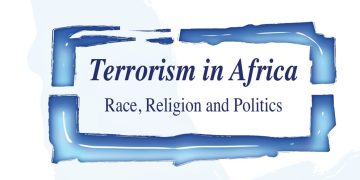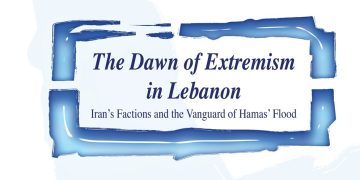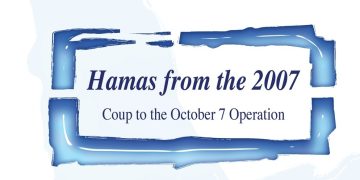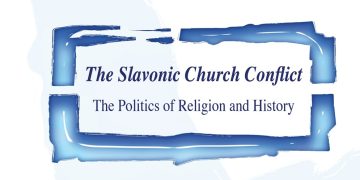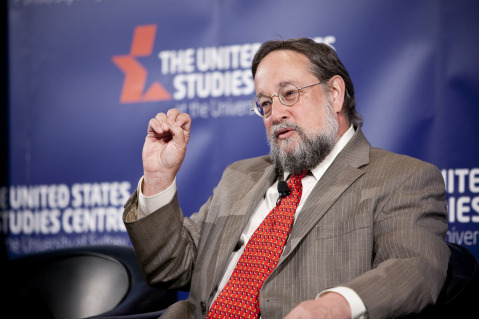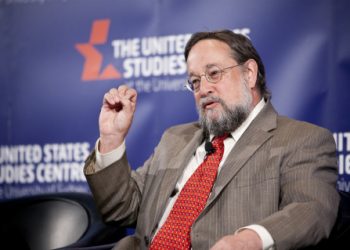by Adam Garfinkle
Truly pious people of all faiths are by nature humble, and generally have more questions than answers. Less pious people in all societies, usually the clear majority, tend to be more self-assured, and often seem content with the answers they already have. Society needs both kinds of people: the pious to dampen hubris, others to be willing to act, and to lead, even under circumstances of uncertainty and moral ambiguity.
Counterterrorism is a case in point. We must hold with the pious that, as all the Abrahamic faiths advise, sin must be separated from the sinner. As Christians especially are wont to say, we must hate the sin while still loving the sinner. This is an important insight. No person, no matter how violence-prone and hate-filled at one time in his or her life, no matter how willing to take innocent lives for some imagined cause, is thereby forever rendered a subhuman monster. No one is beyond a possibility of redemption, so no one should be beyond the possibility of forgiveness. And no one’s (usually) youthful misdeeds can be disassembled after the fact to be judged except in the light of compassion as well as justice.
We try to do that. For many years now, experts and practitioners have sought to establish “who is a terrorist?” Are some personalities, family circumstances, social conditions, religious beliefs, and so on more conducive than others in incubating a terrorist? We have books, papers, studies, and conferences aplenty, but we still don’t know enough to be able to reliably prevent radicalization or to reverse it except at the margins.
We may never know enough to be effective beyond the margins, for two reasons. Most of those who wreak political violence against innocent people are psychologically addled if not aberrant, and most act on the basis of radical ideas only as they are socially embedded in some group. Efforts to stop or reverse radicalization usually must rely on the capacity of the target to take in and process rational thought, and they almost invariably individuate the target. By discounting the power of both deranging emotion and peer-pressure toward conformity, such efforts are bound often to fall short.
Counterterrorism’s direct and immediate application to specific individuals and groups is a combination of therapy and police work (important elements of broader state counterterrorism policy, such as efforts to reduce social marginalization and acute poverty, work at other levels). It is best for the pious, those who can resist loathing their human challenges, to work at the therapy part of the equation. But since complete success is not possible, police work remains necessary—and it is the sort of work best left to those able to choose lesser evils over greater ones, and whose capacity to tolerate and manage moral ambiguity enables them to do occasionally unpleasant things in the interests of a higher social good.
There is a logical division of responsibility between the therapeutic and the police-work aspects of counterterrorism that aligns with the three phases of counterterrorism: prevention, mitigation, and deradicalization.
The ideal approach to counterterrorism, by far the most cost-effective and kind, is to prevent radicalization in the first place. But to be broadly successful it would require ways to repair the dislocations, injustices, and heartbreaks of entire societies. It would need to mobilize healthy families and wise leaders from many walks of life to stand guard over the sanity and souls of every member of the community. We should strive for this, and here therapy takes pride of place. Here, too, women should have a major role in defusing anger and confusion with calm and compassion. But again, there are times and places where the churn of change and the wages of decades upon decades of cynical misrule will overwhelm our striving.
Mitigation follows in the wake of a terrorist atrocity as authorities tend the wounded, reassure the community, and show solidarity with the bereaved. There is thus a therapy aspect to mitigation. But the authorities also round up terrorist accomplices and supporters, gather intelligence to destroy terrorist cells and support structures both inside their zone of jurisdiction and beyond, and use that intelligence to disrupt and destroy terrorists’ capacities to strike again. That is police work. It is no place for the humble, the meek, or the pure. (It is, of course, also not an activity to be subverted by authoritarian regimes using the pretext of counterterrorism to attack their political adversaries, real or imagined; it is hard to think of a more counterproductive form of state misbehavior.)
Deradicalization is the effort to change the mindsets of those who have either perpetrated or been complicit in acts of violence against innocents. Many Arab countries have established deradicalization programs in recent years; some work better than others. Sometimes individuals who are thought to have been deprogrammed end up regressing to the terrorist mean once back in the social environment that incubated their radical mindset in the first place. Deradicalization efforts often coincide with protracted police interrogation of some of those in custody, as well. So the deradicalization phase, too, combines efforts at therapy with aspects of police work.
The challenge posed by terrorism has changed since the early 1970s when it was an instrumentalist tactic of secular nationalists (mainly in the Middle East) and leftwing anti-nationalist radicals (mainly in Europe). Over the past two decades mass-casualty terrorism became a tactic of choice for apocalyptical religious groups. In recent years, in turn, those groups have fractured into smaller but more numerous parts, to include even “lone wolf” terrorists radicalized by the internet.
As a result, counterterrorist efforts have had to evolve just to keep up. But direct efforts remain hybrid in nature, still split between therapy and police work, and still aided by broader counter-marginalization and anti-poverty programs. Those laboring in the therapeutic aspects of counterterrorism are sometimes frustrated by those working the police angle, and the same goes the other away around. Everyone would be better off, and societies would be better served, if all those working for the welfare of the community more fully appreciated that there are two sides to counterterrorist work, both necessary but neither sufficient unto itself.
The author is Editor of The American Interest.


